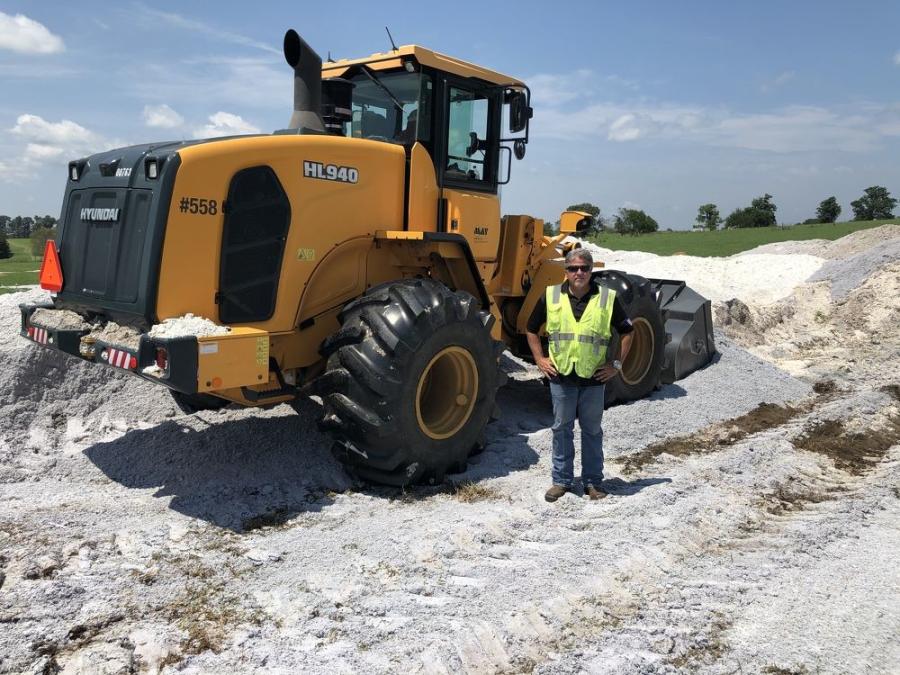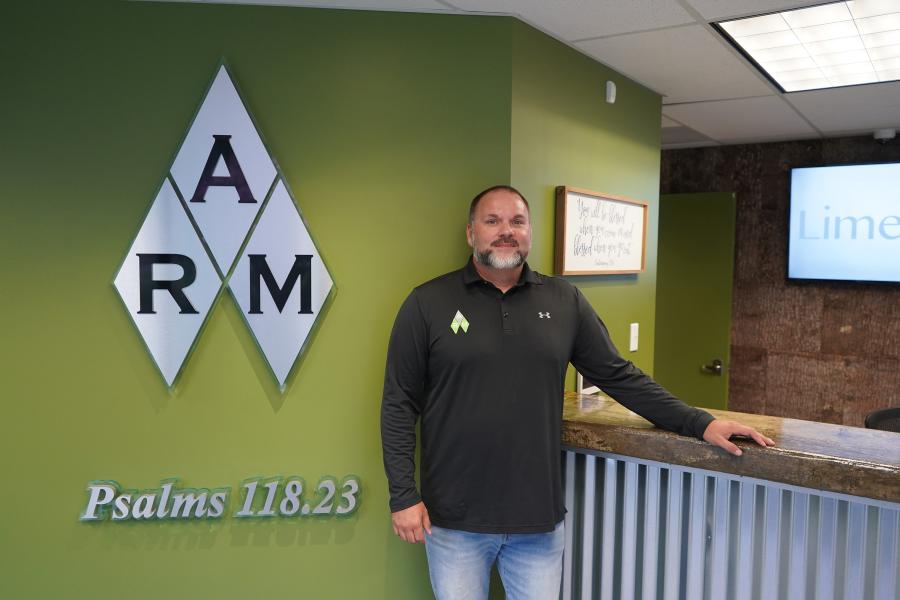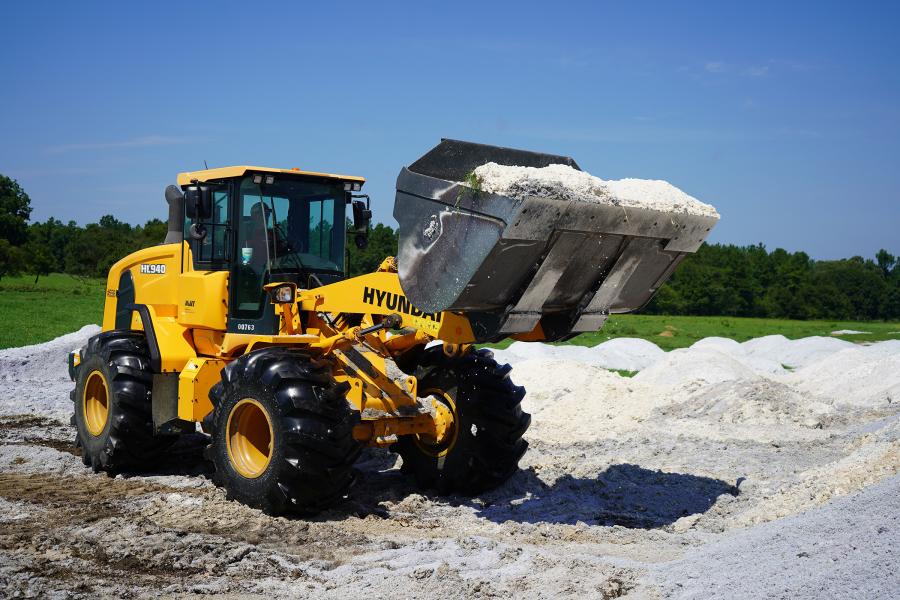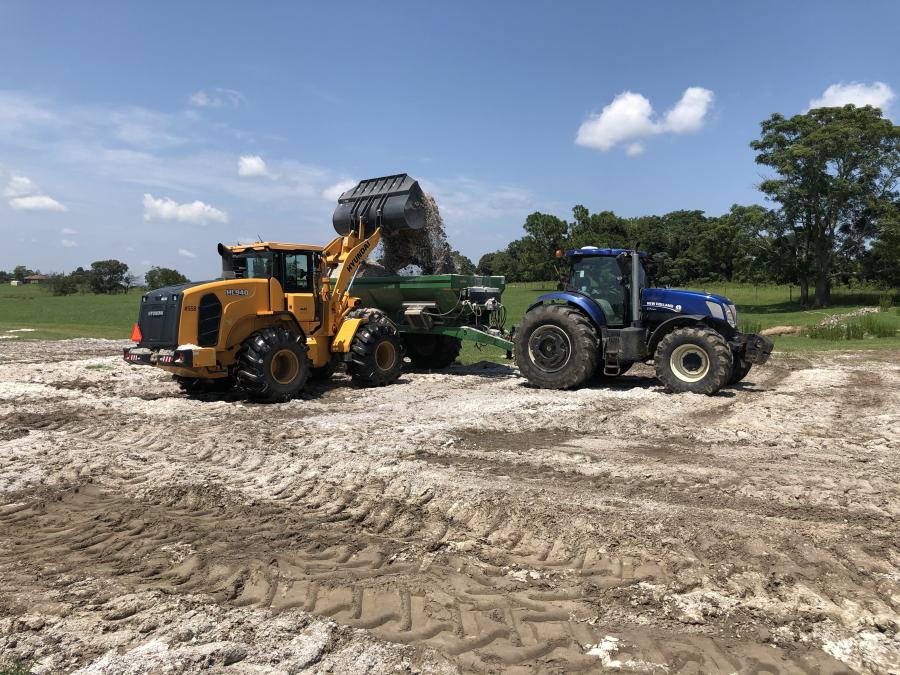Jim Barkley is a regional manager of Advanced Residuals Management LLC.
Helping others become stewards of the health of the planet, while still operating a successful business, is a dream for many owners and executives.
But, in 1999, J. Gary Steele and his wife, Charlot, did just that when they formed Advanced Residuals Management (ARM) LLC. Their intent was to open a contracting company that built, operated and closed landfills for industrial facilities, before later adding a second line of business in the beneficial use and land application of manufacturing by-products — practices that benefit the environment.
By way of definition, beneficial use is the application of some of the millions of tons of industrial waste that can be turned into a natural or commercial product and doesn't harm human life or the environment. ARM uses land application to spread by-products on or into soil surfaces, including agricultural fields, forests and mine reclamation sites. These by-products enrich soil and can supplement or replace fertilizers.
The Steeles still operate ARM along with their son, Brandt, who serves as the company's president and managing member.
While handling its landfill management work in its formative years, Brandt Steele said ARM also took on the task of finding markets to beneficially use the by-products that were being wasted into landfills but had a benefit to local agricultural communities.
"The beneficial use products that we handle are the by-products from the manufacturing of different types of products," he said. "What we concentrate on are their agricultural benefits — the nutrient-value benefits — for soils. That could be a nitrogen value, a pH adjustment or a potash [potassium]."
From its base in Monroe, N.C., ARM today specializes in handling paper manufacturing by-products that mills and recycling plants generate in their processes, such as office paper, brown paper stock and fluff pulp, while also assisting those facilities manage them in an eco-friendly and cost-effective manner.
More specifically, ARM takes waste stream products from paper mills, makes them into beneficial products and hauls them to agricultural fields for land-applying. The liming process is done to raise the pH levels in soil for pastureland and row crop.
ARM's Sites Spread Across Southeast
In 2020, ARM operates 11 total beneficial use program sites in the Southeast, from Virginia south to Georgia and west to Mississippi.
"My father has been doing land application for probably 50 years," said Steele. "He used to handle biosolids and things like that for a lot of municipalities. He chaired the regulatory drafting committee in Virginia and was a member of the committee in North Carolina many years ago for biosolids. He had always done construction and contracting work through the land application businesses, too, and so it was just kind of a natural fit."
Most of the paper facilities ARM markets itself to operate their own onsite landfills for their by-products, while others send their manufacturing waste off site to a landfill.
"So, our goal is to try and get that waste out of the landfills because these products have an actual benefit," Steele said. "It's an economics game for them — in some areas the economics work for them and in others they don't. But the retail industry is driving some of that sustainability, the Green initiative, if you will, in requiring some of these manufacturing facilities to report to them what they're doing and what their waste and by-products are."
One of the key by-products ARM purchases from paper recycling facilities is worn-out, short-fiber paper.
Steele explained that each time paper is recycled, its fibers get shorter and at a certain point in the process it no longer becomes economical to continue recycling. Instead, it is filtered out through the press, meaning a certain percentage of the recycled paper is wasted in the process.
"It happens in de-inking facilities that take in office paper waste and scrub off all the ink on the paper using a lime," he added. "Although some of the long fibers come through, the larger percentage are made up of the shorter ones."
ARM has a proprietary blend it uses to mix these materials together to come up with several products, most of which are given away to farmers. Even if they are charged, depending upon their area and the economics, it's still a low-cost alternative to the fertilizer that they would typically buy, Steele said.
"The win-win is that it's cheaper for the manufacturing facility, cheaper for the farmers and we make money by handling it in the middle," he said. "On top of that, the manufacturing plants get good PR in their community and the end-users — the farmers and the landowners — really like the product because they're saving a lot of money and getting the product's benefit."
ARM Utilizing Hyundai ‘Beasts'
At a typical delivery site, ARM may haul in a product line made up of short paper fibers, lime and clay. After taking it to a farmer, company crews begin the process of using its tractors and loaders to spread it onto the soil at an equivalency rate of one ton of agricultural lime.
ARM has utilized different brands of wheel loaders and excavators over the years, but Steele said the company and its managers have learned that Hyundai equipment is their preferred choice.
Among ARM's rolling stock are 16 Hyundai loaders, ranging from the model HL940 up to the model HL980, as well as a HX300L excavator.
Out in the field, ARM's crews use them to load their spreading equipment, while on site they load product onto tractor trailers and dump trailers. Steele said the Hyundais also are used to process materials, which are run through both a blending process and an operation to get them more consistent and particle sized.
Steele trusts the professionals at North Carolina-based MAY-RHI, the veteran heavy equipment dealer to provide him with machines and timely service and support.
He considers two main factors when deciding ARM needs a new machine.
"Price is always a factor, but I don't strictly just look at that; rather, I focus on value. Power-wise, the Hyundai loaders are very strong. Their prices are very good, and the brand has a great extended warranty program. From my dealings, it's the best [manufacturer] in the industry. And the service we get from MAY-RHI is just incredible. They are very responsive; usually within a day somebody is there to help us on site with any problem that we have."
Jim Barkley, a regional manager of ARM, echoed Steele's opinion on the Hyundai HL940 wheel loaders and working with MAY-RHI.
"We started using Hyundai a couple years ago and just found it to be a superior loader," he said. "It handles better, gives you a much smoother ride and smoother hydraulics. The service and maintenance MAY-RHI provides has proven much better than all the other companies we have dealt with."
The Hyundai HL940 loaders have reached a legendary status at ARM, Steele explained, so much so that they are known as "The Beast" within the company.
"At a large job down in Georgia, one of our three-wheeled floater spreaders had gotten stuck in a field, so the crew took the second spreader they had to try to pull it out and it got stuck as well," he said. "Then, they took another brand of loader out and tried to pull the first spreader out and it got stuck, too. We also had two tractor trailers come out in the field and they got stuck on their way in. Our guys went to another field, grabbed the Hyundai loader and brought it over, pulled both the trucks out, plus the other brand of loader and got the spreaders free, too.
"That was the first Hyundai loader I bought, and when my crew down there called to tell me the story, one said ‘Man, this thing is a beast!' That's how these loaders gained their nickname."
The headquarters for Advanced Residuals Management LLC is located at 1503 North Rocky River Road in Monroe, N.C. For more information, call 704/288-1550, or visit www.advancedresiduals.com
MAY-RHI has seven dealerships in the two Carolinas, as well as 17 service centers. In business since 1997, it provides the tools needed for construction, mining and more.
For more information, call 866/629-3784, or visit www.mayequip.com. CEG
Today's top stories
























